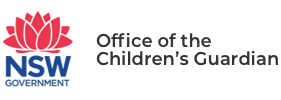Designated agencies must ask carer applicants if they have previously applied for authorisation as a carer, or have been authorised by another designated agency.
About other agency checks
Other agency checks allow agencies to assess someone’s suitability based on their experience with other designated agencies.
Before entering an OOHC application (applicants and household members) onto the Carers Register designated agencies are directed to complete a search of the applicant’s Carers Register history, including whether the applicant has been:
- a carer applicant
- an authorised carer
- a household member with any other designated agency.
If the applicant is recorded in the Carers Register, the relevant agency must contact any other designated agency that has had an association with the applicant.
Completing other agency checks
When completing carer assessments, a designated agency must consider information provided by other designated agencies.
A decision not to approve a carer applicant or to cancel a carer’s authorisation by one agency does not necessarily determine the outcome for another agency’s decision. Each designated agency must assess all relevant information before they decide if the individual is appropriate to be authorised as an OOHC carer.
If a carer has been authorised by DCJ, designated agencies should ask for all records held by DCJ about the applicant and their household members including:
- child protection reports
- assessments
- case notes and case plans
- authorisation reports
- letters
- reviews
- reportable allegation and carer related documents.
Information relevant to the community service check and the other agency check may be included in the same documentation.
Other agency check protocol
This protocol and the suggested forms are not prescribed under legislation, but they are designed to support the other agency check process when assessing an applicant’s suitability to be authorised as a carer and to create consistency across the sector.
There are two forms to complete, depending on whether you are requesting relevant information or responding to a request:
Part 1 – Agency requesting information
This is completed by the agency making a request for an other agency check from another agency.
Part 2 – Agency recording and providing information
This is completed by the agency who holds the relevant information and is providing this to another agency at their request.
